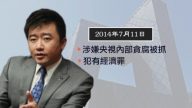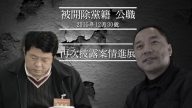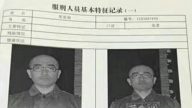【新唐人2013年12月20日訊】中共喉舌《央視》日前狠批網路「人肉搜索」是造成一名高中女生自盡的「罪魁禍首」,國信辦新聞協調局局長更宣稱:「『人肉搜索』是一種網路暴力行為,是違法的。」但評論者批評中共變相保護貪官,拿普通人的隱私做幌子,混淆概念,抹黑網路上的「人肉搜索」。
12月初,廣東一名高中女孩在購物時,被店主懷疑偷竊服裝,店主發微博請求網友對她進行「人肉搜索」, 第二天,這名女孩從一座橋上跳下身亡。中共媒體說,由於不堪壓力,這名女孩投河自盡。
16號中共喉舌《央視》的節目中猛批「人肉搜索」。17號,中共國信辦新聞協調局局長劉正榮更宣稱,「人肉搜索」是一種網路暴力行為,是不道德的,也是違法的。
劉正榮還恐嚇對發起「人肉搜索」者,將依法追究責任。他還警告網站,發現「人肉搜索」行為,沒有及時制止的也將追究責任。
大陸維權律師唐荊陵指出,網路「人肉搜索」主要是針對中共官員腐敗行為,中共用普通人的隱私作為幌子,作為說辭,混淆概念,故意抹黑「人肉搜索」。
大陸維權律師唐荊陵:「中共官員它在談的時候,顯然迴避了這個問題,迴避『人肉搜索』主要針對官員腐敗。他談甚麼隱私保護,但是他混淆了這個普通人的隱私保護、反對官員腐敗、揭露官員醜聞之間的界線,這中間有著很明顯不同的標準,不同的保護。」
南京「東南大學」法學院教授張讚寧不否認「人肉搜索」會有一些負面效應,但是對於不受監督的中共官場上的亂象,起到的卻是積極的監督和揭露的作用 。
南京「東南大學」法學院教授張讚寧:「比如有些人做了壞事,做了些違法的事﹔比如有些官員嫖娼、包二奶﹔你比如那個著名的導演張藝謀有很多小老婆,而且生了很多孩子,如果不通過『人肉搜索』的話,這些情況就不可能搞清楚,所以我認為它有積極作用的一面,可以遏制腐敗,可以使公眾了解一些社會真相。」
2008年,南京房管局局長周久耕事件,開啟了大規模「網路反腐」先河,周久耕因為抽名煙、戴名錶而被網民「人肉搜索」出連串貪腐醜聞,最後被雙規。
近幾年來,通過網路「人肉搜索」被曝光的中共貪官、淫官更是數不勝數。如重慶市北碚區區委書記雷政富事件;陝西表哥楊達才事件;上海五法官嫖娼事件;中共前編譯局長衣俊卿事件;原發改委副主任劉鐵男事件等。
唐荊陵:「實際上『人肉搜索』主要是通過網路,來收集有關官員的醜聞或腐敗的信息,這個根本是不違法的,完全是合法,而且是一個正當的、正義的行為,需要提倡和鼓舞的行為。」
唐荊陵指出,中國的法律對普通人的隱私是有法規保護的,但是對於官員們,或者涉及到官員、公眾人物的醜聞,進行「人肉搜索」不違法。
張讚寧:「對於公眾人物,我覺得沒有隱私可言的,國外也是這種法律規定,只有對普通百姓的個人隱私是要保護的,對於官員們的個人隱私,它應該是暴露在光天化日之下,應當人民群眾監督,所以我認為『人肉搜索』只要用的好,就不會產生它所擔心的那些負面效應。」
時政評論員汪北稷指出,中國的媒體受中共專制的控制,失去了監督官員的作用, 而西方的媒體作為第四權力的補充,對公眾人物、官員等起到了無所不在的監督作用。
時政評論員汪北稷:「在西方就不會存在完全依靠網路去搜索,0139中國大陸的人民他們也沒有選票,也沒有它所謂的憲法給予的監督的權力,他們只能通過網路的方式來搜索,很多社會上發生的、被曝光的事情,當然還有許許多多沒有曝光的事情。」
近年來,「人肉搜索」作為中國民眾的網路反腐利器,致使眾多中共官員的醜聞曝光而落馬,中共在鉗制「人肉搜索」方面也動作頻頻,如打擊所謂「網路謠言」,讓網路「大V」名人噤聲,或大肆抓捕網路敢言人士,甚至出臺惡法:網帖被轉500次遭刑拘等。
採訪編輯/李韻 後製/鍾元
China Communist mouthpiece misleads Chinese Cyber Manhunt
Cyber Manhunt (or Human Flesh Search) is a popular
online activity in mainland China.
The Chinese Communist mouthpiece CCTV blames
the Cyber Manhunt for a high school girl’s suicide.
China’s state Internet regulator says the Cyber Manhunt
is Internet violent and illegal.
Commentators say the authorities try to mix up the concept
of the Cyber Manhunt with personal privacy and
smear its intention to cover up for the corrupt officials.
In early December, a Guangdong high school girl was
suspected of stealing in a clothing shop.
The owner issued a Cyber Manhunt for the girl.
The girl died from jumping off a bridge the next day.
The media says the girl drowned herself over unbearable
pressure.
On Dec. 16, one of CCTV’s programs
condemned the Cyber Manhunt.
On Dec. 17, China’s Internet Affairs Bureau deputy chief
Liu Zhengrong said the Cyber Manhunt is
an Internet violence and is immoral and illegal.
Liu Zhengrong warns that those who initiate Cyber Manhunts
will be subject to prosecution.
Websites are also held accountable for hosting such activities.
Human rights lawyer Tang Jingling says the Cyber Manhunt
originally targeted corrupt officials.
He says he regime deliberately mixes the concept
with personal privacy as a guise to confuse the public.
Tang Jingling, Human rights lawyer: “The Communist
officials clearly neglected the fact that the Cyber Manhunt
was targeting corruption.
Speaking of privacy, they cross the lines between the privacy,
and the opposing corruption and exposing scandals.
They are under different standards and protections."
Law school professor Zhang Zanning agrees with the cyber
hunt’s positive effect of whistleblowing on chaotic Communist
officials even though there is certain negative effect.
Zhang Zanning, Law School professor of Southeast University,
Nanjing: “For example, the illegal conducts of the officials
such as with prostitutes, mistresses; the famous director
Zhang Yimou’s many concubines and children, and so forth.
They were revealed only because of the cyber hunt.
I believe in the positive side of the activity to curb corruption
and reveal the truth to the public."
The Chinese Cyber Manhunt began when the Nanjing housing
official Zhou Jiugeng’s incident was exposed.
Zhou Jiugeng was sacked after the search on-line about his
behavior in smoking expensive cigarettes and
wearing name brand luxurious watches.
The Cyber Manhunt has exposed countless Communist officials
involved in corruption and scandals,
such as Chongqing Party Secretary Lei Zhengfu’s sex scandal,
Shaanxi official Yang Dacai’s 83 luxurious watches,
the prostitution case of five Shanghai judges’s,
Central compilation and translation bureau chief
Yi Junqing’s sex scandal, and former Reform Commission
deputy director Liu Tienan’s bribery case.
Tang Jingling: “In fact, the Cyber Manhunt collects
information on corrupt officials through the Internet.
This is not illegal, but a normal and righteous activity,
which ought to be encouraged."
Tang Jingling stresses personal privacy is protected by law.
However, cyber hunt against officials or public figures for
their scandals is not illegal.
Zhang Zanning: “I don’t think there is issue of privacy to a
public figure, and I believe other countries have similar rule.
Personal privacy of ordinary people needs to be protected.
The officials’ personal issues should be open to the public
and supervised by the people.
I believe with proper conduct, the Cyber Manhunt should not
generate any negative effects of concern."
Commentator Wang Beiji says China’s media is controlled by
the Communist dictatorship and have lost their role of
supervision, while the Western media, as a supplement to the
fourth power, have the ubiquitous supervisory function to
their public figures and officials.
Wang Beiji, commentator: “That’s why in the West, it would
not necessarily entirely rely on the Internet.
In China, people have no rights to vote, no supervision power
entitled by the constitution, but the Internet to search and
to expose.
Of course, there are many incidents not revealed yet."
The Cyber Manhunt has become the anti-corruption tool for
the Chinese.
Many Communist officials have been sacked due to the
Internet exposure.
The regime has also conducted multiple activities to restrict
the cyber hunt; cracking down on so-called Internet rumors,
silencing influential microbloggers,
arresting outspoken netizens,
and even issuing a law stating, that bloggers with posts
shared 500 times are subject to detention.
Interview & Edit/LiYun Post-Production/Zhong Yuan























